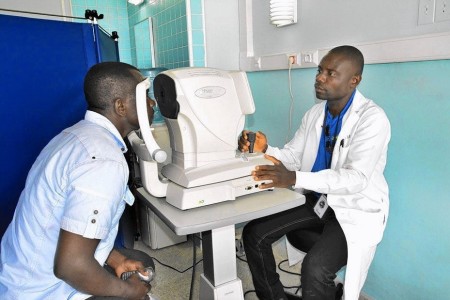Toddler brain damaged after meningitis miss- The Capital health board has been blamed for a young boy’s brain damage because meningitis was missed by two Wellington Hospital doctors.
Meningitis is an acute inflammation of the protective membranes covering the brain and spinal cord, known collectively as the meninges.The inflammation may be caused by infection with viruses, bacteria, or other microorganisms, and less commonly by certain drugs.Meningitis can be life-threatening because of the inflammation’s proximity to the brain and spinal cord; therefore, the condition is classified as a medical emergency.
Inflammation of the meninges may lead to abnormalities of the cranial nerves, a group of nerves arising from the brain stem that supply the head and neck area and which control, among other functions, eye movement, facial muscles, and hearing.Visual symptoms and hearing loss may persist after an episode of meningitis.Inflammation of the brain (encephalitis) or its blood vessels (cerebral vasculitis), as well as the formation of blood clots in the veins (cerebral venous thrombosis), may all lead to weakness, loss of sensation, or abnormal movement or function of the part of the body supplied by the affected area of the brain.
The most common symptoms of meningitis are headache and neck stiffness associated with fever, confusion or altered consciousness, vomiting, and an inability to tolerate light (photophobia) or loud noises (phonophobia). Children often exhibit only nonspecific symptoms, such as irritability and drowsiness. If a rash is present, it may indicate a particular cause of meningitis; for instance, meningitis caused by meningococcal bacteria may be accompanied by a characteristic rash.
Meningitis is typically caused by an infection with microorganisms. Most infections are due to viruses, with bacteria, fungi, and protozoa being the next most common causes.It may also result from various non-infectious causes. Viruses that cause meningitis include enteroviruses, herpes simplex virus (generally type 2, which produces most genital sores; less commonly type 1), varicella zoster virus(known for causing chickenpox and shingles), mumps virus, HIV, and LCMV. Mollaret’s meningitis is a chronic recurrent form of herpes meningitis; it is thought to be caused by herpes simplex virus type 2.
Health and Disability Commissioner found responsibility for deficiencies in William Burton’s care in lay with the Capital and Coast District Health Board. It breached the Burtons’ right to have services provided with reasonable care and skill, the commissioner ruled.
William, who is now 2, was brought to the hospital by his parents in October 2013 and was twice sent home within two days, with a junior doctor on the second occasion diagnosing a gastric illness. Last month, William was placed on life support when suffering pneumonia. He recovered and returned home until the latest infection struck.
“He hasn’t really improved that much. He’s got very tight breathing. He’s being supported with some oxygen. We don’t think he’s in any danger. This is his sixth hospitalization for respiratory illness and he’s not in that much danger.” Burton said.
Three days after that, on William’s third visit to hospital, meningitis was diagnosed and his parents, Derek and Wendy, then spent a heart-wrenching month watching their boy’s brain damaged.
The DHB’s investigation found the second doctor to see William did not give the possibility of an infection proper consideration and the hospital did not have in place a proper process for more senior staff having oversight of pediatric juniors. The DHB has since changed its practices, including making sure a child taken to hospital twice within 72 hours is examined by a senior staff member.
That doctor also didn’t give the Burtons clear instructions about what to do if William’s fever remained, but their assessment was appropriate given their level of experience.
According to Capital and Coast DHB chief medical officer Geo-ff Robinson, the DHB accepted the commissioner’s findings and “unreservedly apologizes for the grief and distress suffered by the patient and their family as a result of this regrettable event”.
“As health professionals, patient safety is our number one priority and we have taken several actions following this event to reduce the risk of it occurring again,” Dr Robinson said. The Burtons are considering their legal options, including seeking an immediate injunction against the decision, should that be required. Further action is possible too.
“I think, from what we’ve heard, you can challenge the hospital’s decision and ask to get them to provide full support,” Mr Burton said. “We are thinking about it and we’ve started to do some investigation. The news is pretty recent and still pretty raw - within the last two or three weeks we’ve had the news.” he added.IMAGE/www.stuff.co.nz





